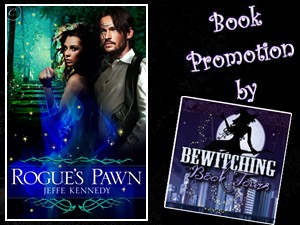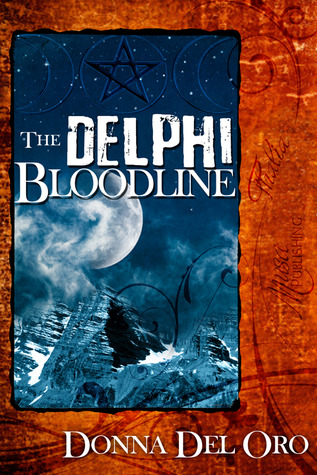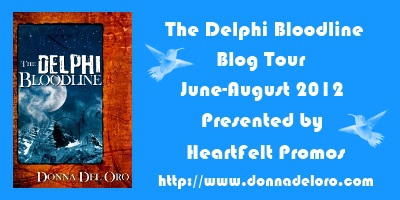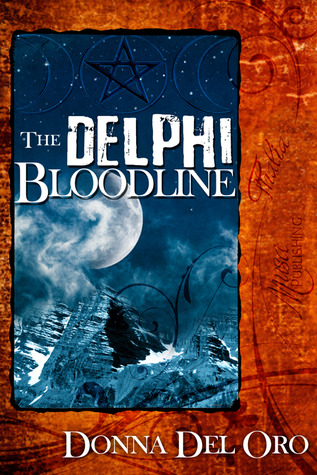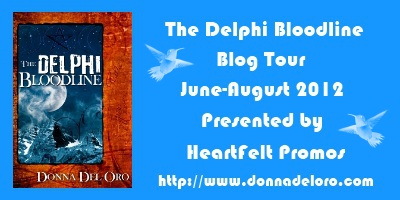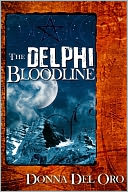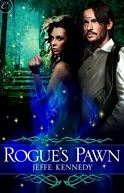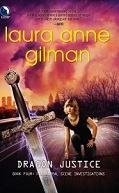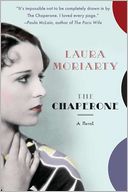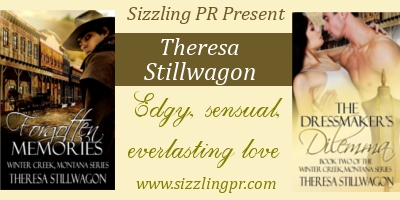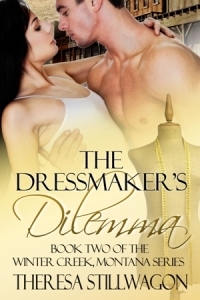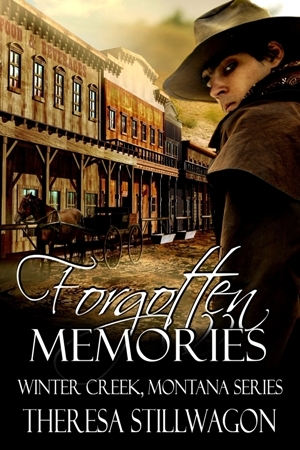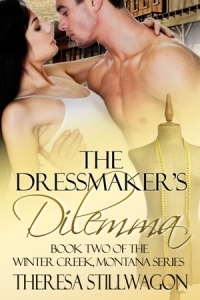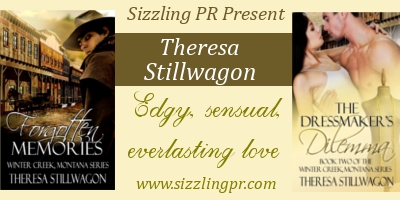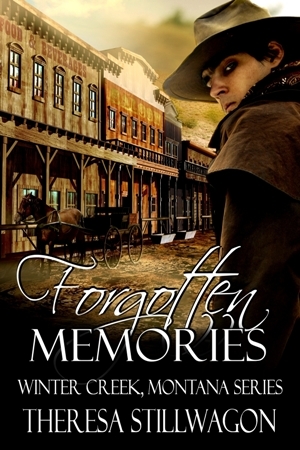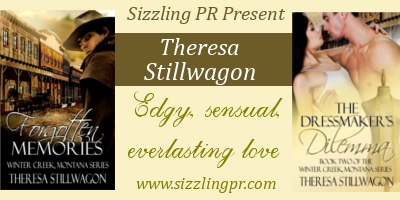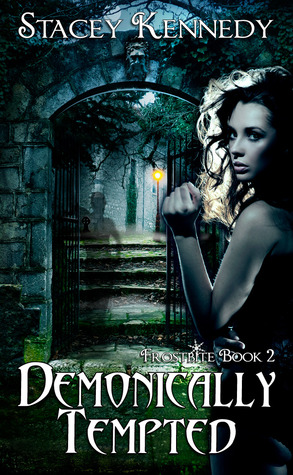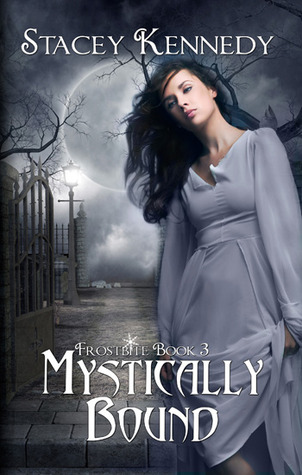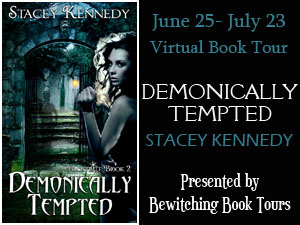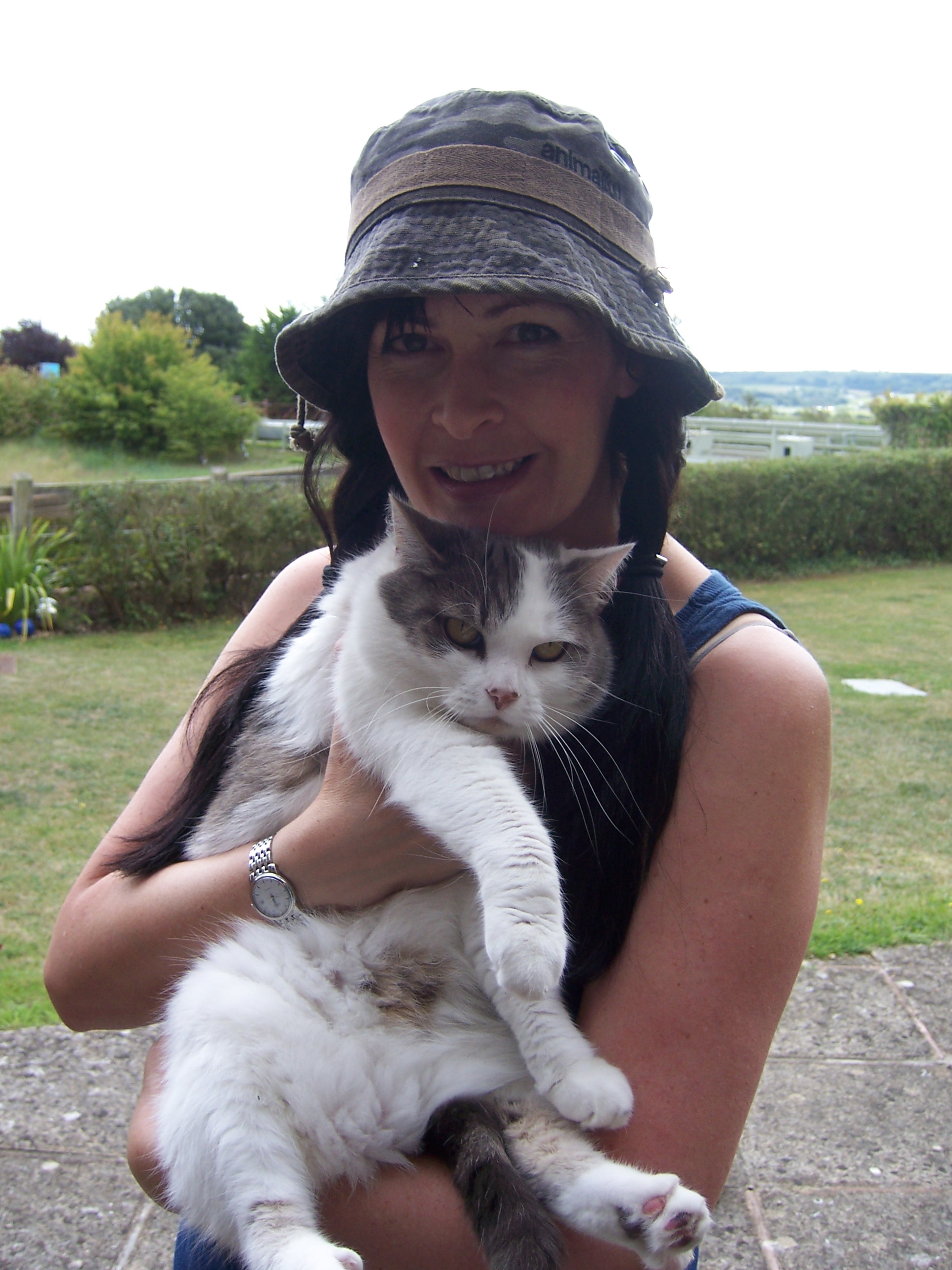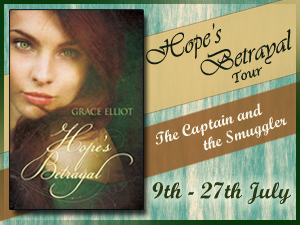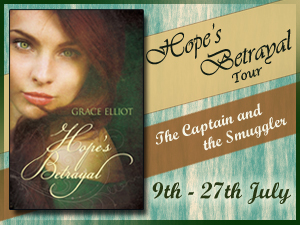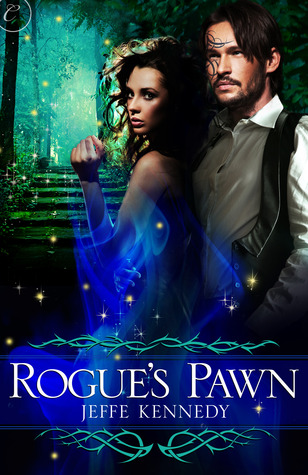 Rogue’s Pawn by Jeffe Kennedy is part of an interesting and fascinating sub-branch of urban fantasy. I call it crossover fantasy, where someone from our reality literally “crosses over” to another reality where magic works.
Rogue’s Pawn by Jeffe Kennedy is part of an interesting and fascinating sub-branch of urban fantasy. I call it crossover fantasy, where someone from our reality literally “crosses over” to another reality where magic works.
But just because magical powers are made manifest, doesn’t mean that the person suddenly manifesting them has a magically good time in whatever place he or she has found herself in. Magic can be both wondrous and terrible.
 As the story opens, we don’t even know her name. But we’re in her head. And we know that she’s finally gotten fed up with her boring fiance and her academic/scientific job in the middle of a party where Clive (the truly boring fiance, she should have ditched him long ago) has belittled her for the last time. But in walking out, she follows a compulsion to go to nearby Devil’s Tower (Wyoming, iconic scene of Close Encounters of the Third Kind) and enact a very strange ritual.
As the story opens, we don’t even know her name. But we’re in her head. And we know that she’s finally gotten fed up with her boring fiance and her academic/scientific job in the middle of a party where Clive (the truly boring fiance, she should have ditched him long ago) has belittled her for the last time. But in walking out, she follows a compulsion to go to nearby Devil’s Tower (Wyoming, iconic scene of Close Encounters of the Third Kind) and enact a very strange ritual.
She winds up in Fae, with the ability to wish things into being, and no idea how she got there. Compulsions to enact rituals don’t really figure into her calculations.
She’s attacked by a huge black dog, and captured by the fae. She wakes up in extreme agony, her throat nearly torn out. From there, she discovers that she has terrible magic powers, and zero control.
She truly does think things into being. And she has no mental controls at all. As far as the fae are concerned, she is a dangerous weapon that should be eliminated immediately. But the man who has rescued her wants her trained for war. He believes she is a weapon that can be used, with the proper conditioning.
His name is Rogue. She is chained within his castle. She is his pawn, his property. If he saves her life, she owes him.
Everything in fae is negotiable. Life, death, power, souls. Eternity can be bargained away. A person is only worth the price they can negotiate. Rogue has saved her because he wants something from her, but she doesn’t know what that might be.
She doesn’t know anything. From being an academic with knowledge at her fingertips, she has been thrust into a situation in which she has no information except what she can gain through negotiation.
She doesn’t even have her own name. Rogue calls her Gwynn. It is close, but not quite. And for the damage she caused in her first flush of power and lack of knowledge, he negotiates her use as a weapon in the war. She will be trained by utter sadists, but she cannot be permanently damaged. And she cannot be raped. Because Rogue has the rights to her firstborn child in return for saving her life.
Confused? So is Gwynn. She has lost everything, even her identify. She must remake herself in this strange new place where she has no friends, only enemies. And where she has power she must learn to control. She has to become more than just Rogue’s Pawn.
Escape Rating B: Gwynn’s voice is snarktastically terrific. Which is a great thing, because we see the entire world of Rogue’s Pawn through her first-person viewpoint. We only know what she knows and see what she sees. Her sarcasm is hilarious, but, because Gwynn is such a complete fish-out-of water, her knowledge is limited and adds to the reader’s confusion. I think I might have enjoyed the story more if I’d been less confused.
Gwynn’s lack of information is necessary to the story. I’m less certain that the reader’s total blindness is.
The training Gwynn undergoes to become a sorceress for the war effort is unquestionably torture, and equally unquestionably sadistic. Some desperate measure were definitely required to save Gwynn’s life by training her magic. She absolutely had to learn to make her mind a blank. Whether this was the only way, and how much of a betrayal it was, and how Rogue felt about it, etc., is one of those things that a different form of narration might have helped with.
Rogue’s motives and thoughts are difficult to fathom for a large part of the story. Gwynn simply doesn’t know enough about this world to have any handle on him. And we filter through her. Although we do finally get the big picture at the end. It’s the smaller pictures, like the war (hard to believe that’s the smaller picture, isn’t it?) that I’d love some explanation for.
And I truly wish I understood about Titania. Hopefully, I’ll find out lots more in the next books in the Covenant of Thorns series. Please?

